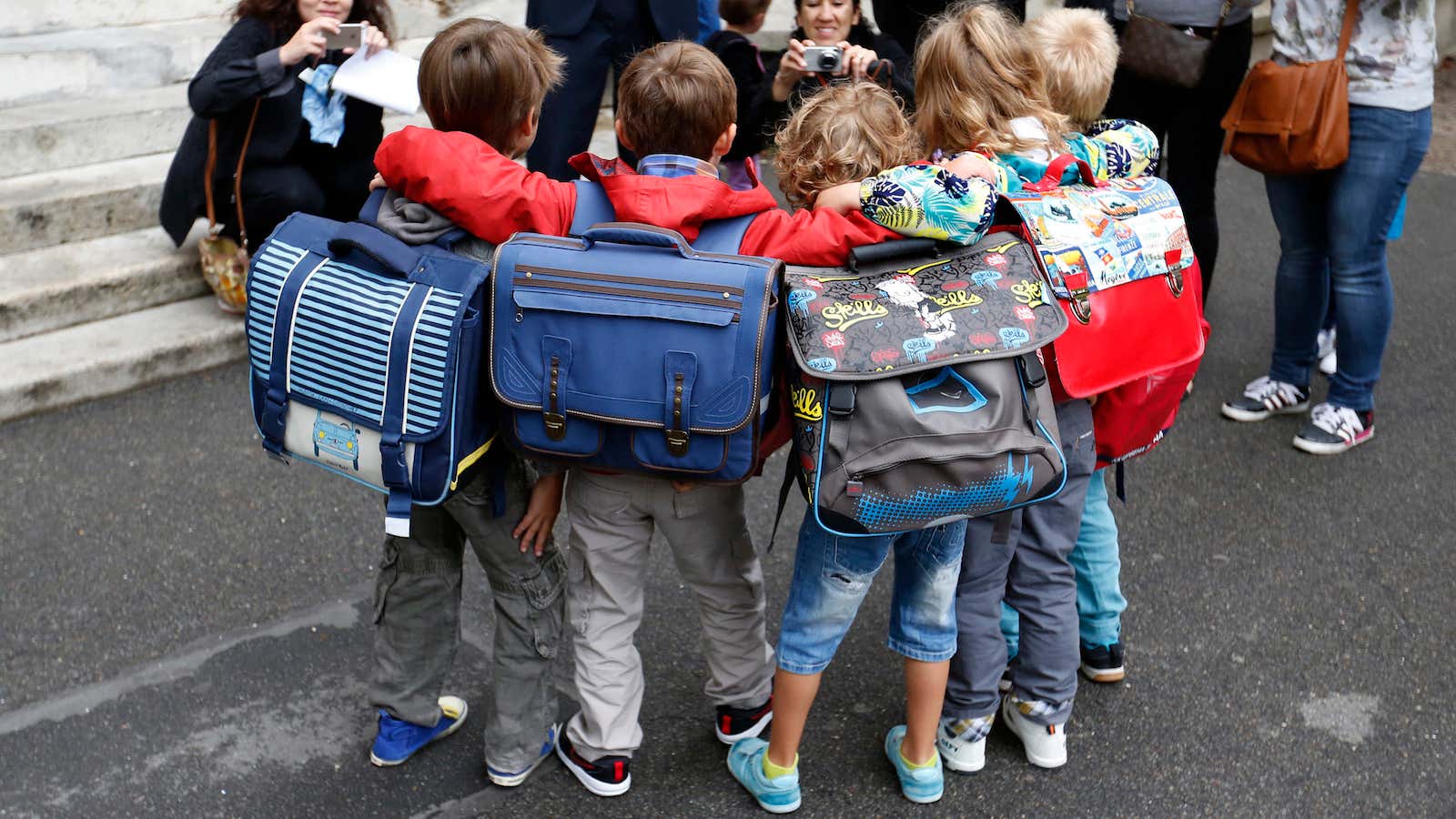When my husband I put our toddler to bed at night, we always choose a tee that is pre-school appropriate, since our son frequently decides that changing his shirt is not a thing he would like to do in the morning. You have to pick your battles, right?
So he often wears the same shirt to school that he wore to bed the night before. His blond hair sometimes isn’t combed, if we’re in a rush when we leave the house. There are mornings when he still has peanut putter smudges on his round cheeks because I didn’t wash his face after breakfast. I don’t worry about it.
What does my son’s scruffy look say about him? About us, his parents? Just as we infer things about adults based on their wardrobes, our children’s clothes tell stories as well. The ostensible purpose of baby clothes is to contain and absorb bodily fluids and provide warmth and protection—but we parents also use them as billboards for identity, and primers on our child-rearing philosophies.
An aggressively non-gendered Scandinavian ensemble makes it clear that you won’t be hosting any sateen-drenched princess-themed birthday parties. A rough linen pinafore paired with a bespoke sun bonnet screams your home’s screen-free policy and dedication to breakfast porridge made from heirloom grains. A onesie designed to look like an NWA album cover tweaked to say “Straight Outta Mommy” advertises that you’re not stressing about drinking a glass or two of wine while breastfeeding (nor should you). A $30 organic onesie decorated with a fox, whale, bicycle or vegetable says that you still have a lot of single friends. A heavy rotation of high-end luxury baby clothes says that you enjoy covering stacks of $20s in vomit.
My penchant for hand-me-downs signals my Gen X enthusiasm for the thrift store, where I still buy a lot of my own clothes, having spent most of the early 1990s searching for the perfect Kurt Cobain grandpa sweater to shrug on over overalls and baby doll dresses. My willingness to send my child to school with bedhead and a shirt that might well have traces of breakfast on it says I enjoy this aesthetic. It says I’m probably part of what sociologist Elizabeth Currid-Halkett has dubbed the “aspirational class,” which prefers a New Yorker tote bag to a Gucci bag, eats free-range chicken and heirloom tomatoes.
But letting my child look like a slob also says something else: that I’m not particularly worried that anyone is going to judge my parenting or my home because of what my child is wearing or how clean his fingernails are. That’s a privilege, in a society that broadly stereotypes poor parents as lazy, drug-addicted, or inattentive—one with a child welfare system that treats low-income families with tragic indifference.
The local pre-school my son goes to is one of the least fancy in a small town that somehow supports a Montessori school, a Waldorf-style school, and several other options that have high price tags and lofty educational ideas. I send him where I do because the people are kind and lovely and because it’s affordable. Breakfast, lunch and two snacks are served every day, and twice a week the local soup kitchen sets up shop and also provides lunch for the kids.
A state program provides backpacks full of food for families who meet certain income requirements to take home over the weekend, and they’re tucked into many of the children’s cubbies on Friday afternoon. I’ve noticed that the kids who take backpacks full of instant oatmeal and bananas home on Friday are the most put-together of the bunch. They’re much more likely to wear matching outfits every day. Their hair is always brushed, and often wrangled into neat braids and pigtails.
My son’s rag-tag appearance conveys just as clearly that I’m benefiting from my white, middle-class privilege as if I dressed him in a bonnet or a designer bomber jacket.
Don’t get me wrong, I think my child is pretty much the most adorable human to ever walk the planet, and I like dressing him up in a cute outfit (until it’s covered with paint, playdough, mud or worse). But I’m lucky enough to be able reject the idea that his wardrobe, and intense messiness, have any bearing on my fitness for or dedication to being a parent. I just wish all parents had that same freedom.
